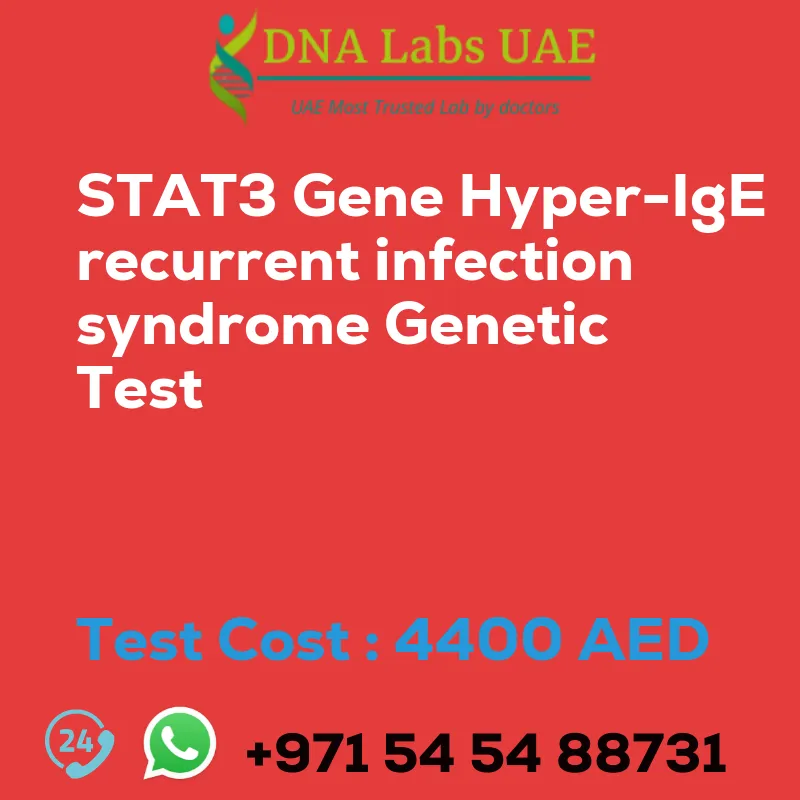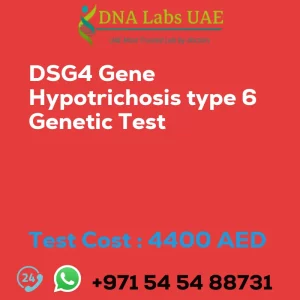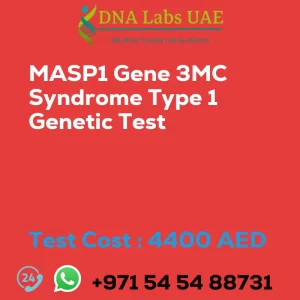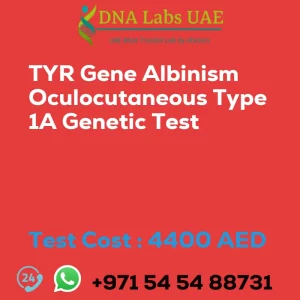STAT3 Gene Hyper-IgE Recurrent Infection Syndrome Genetic Test
At DNA Labs UAE, we offer the STAT3 Gene Hyper-IgE Recurrent Infection Syndrome Genetic Test at a cost of AED 4400.0. This test is used to diagnose and identify mutations in the STAT3 gene that may be responsible for Hyper-IgE recurrent infection syndrome (HIES).
Test Components
- Price: 4400.0 AED
- Sample Condition: Blood or Extracted DNA or One drop Blood on FTA Card
- Report Delivery: 3 to 4 Weeks
- Method: NGS Technology
- Test Type: Osteology Dermatology Immunology Disorders
Doctor and Test Department
This test is recommended by Dermatologists and is conducted in our Genetics department.
Pre Test Information
Prior to the STAT3 Gene Hyper-IgE Recurrent Infection Syndrome Genetic Test, it is important to provide the clinical history of the patient. Additionally, a Genetic Counselling session will be conducted to draw a pedigree chart of family members affected with STAT3 Gene Hyper-IgE recurrent infection syndrome NGS Genetic DNA Test gene STAT3.
Test Details
The STAT3 gene is responsible for encoding a protein called signal transducer and activator of transcription 3. This protein plays a crucial role in the immune system by regulating the expression of genes involved in immune responses.
Hyper-IgE recurrent infection syndrome (HIES) is a rare genetic disorder characterized by recurrent bacterial and fungal infections, elevated levels of immunoglobulin E (IgE) antibodies, and various other symptoms. HIES can be caused by mutations in the STAT3 gene, leading to impaired immune function.
NGS (Next-Generation Sequencing) genetic testing is a method used to analyze multiple genes simultaneously and identify genetic variations or mutations that may be associated with a particular condition or disease. In the case of Hyper-IgE recurrent infection syndrome, NGS genetic testing can be used to identify mutations in the STAT3 gene that may be responsible for the disorder.
By identifying specific mutations in the STAT3 gene, NGS genetic testing can help confirm a diagnosis of Hyper-IgE recurrent infection syndrome and provide valuable information for genetic counseling, treatment planning, and management of the condition. It can also be used to screen family members for the presence of the mutation and assess their risk of developing the syndrome.
| Test Name | STAT3 Gene Hyper-IgE recurrent infection syndrome Genetic Test |
|---|---|
| Components | |
| Price | 4400.0 AED |
| Sample Condition | Blood or Extracted DNA or One drop Blood on FTA Card |
| Report Delivery | 3 to 4 Weeks |
| Method | NGS Technology |
| Test type | Osteology Dermatology Immunology Disorders |
| Doctor | Dermatologist |
| Test Department: | Genetics |
| Pre Test Information | Clinical History of Patient who is going for STAT3 Gene Hyper-IgE recurrent infection syndrome NGS Genetic DNA Test. A Genetic Counselling session to draw a pedigree chart of family members affected with STAT3 Gene Hyper-IgE recurrent infection syndrome NGS Genetic DNA Test gene STAT3 |
| Test Details |
The STAT3 gene is responsible for encoding a protein called signal transducer and activator of transcription 3. This protein plays a crucial role in the immune system by regulating the expression of genes involved in immune responses. Hyper-IgE recurrent infection syndrome (HIES) is a rare genetic disorder characterized by recurrent bacterial and fungal infections, elevated levels of immunoglobulin E (IgE) antibodies, and various other symptoms. HIES can be caused by mutations in the STAT3 gene, leading to impaired immune function. NGS (Next-Generation Sequencing) genetic testing is a method used to analyze multiple genes simultaneously and identify genetic variations or mutations that may be associated with a particular condition or disease. In the case of Hyper-IgE recurrent infection syndrome, NGS genetic testing can be used to identify mutations in the STAT3 gene that may be responsible for the disorder. By identifying specific mutations in the STAT3 gene, NGS genetic testing can help confirm a diagnosis of Hyper-IgE recurrent infection syndrome and provide valuable information for genetic counseling, treatment planning, and management of the condition. It can also be used to screen family members for the presence of the mutation and assess their risk of developing the syndrome. |








